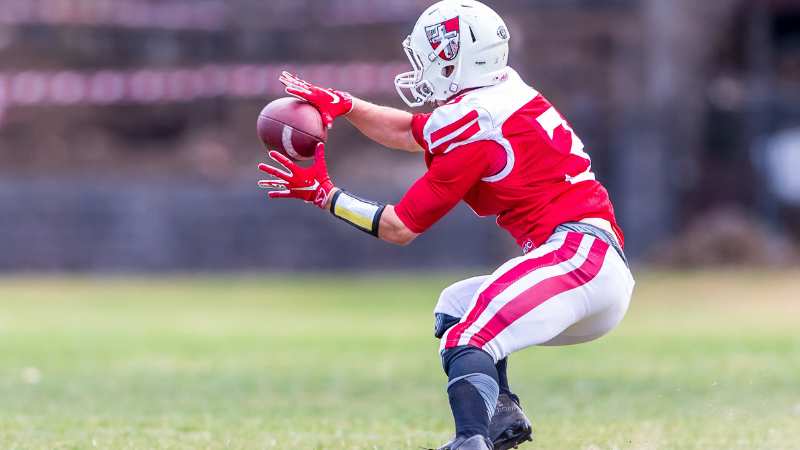(SQAUK) — The National Football League (NFL) faces a massive $21 billion lawsuit in a surprising development that has rocked the sports world. This unprecedented legal battle, led by a coalition of former players, team owners, and advocacy groups, threatens the core of America’s most popular sport. As the case progresses, its impact could be felt across the league, affecting financial stability, player welfare, broadcasting rights, and fan engagement.
The origins of this significant lawsuit can be traced back to increasing dissatisfaction among players and team owners over the NFL’s handling of several critical issues. Central to the case are allegations of gross negligence concerning player health, especially regarding concussions and chronic traumatic encephalopathy (CTE). Over the past decade, mounting evidence has linked repeated head injuries sustained during play to severe long-term health consequences, including cognitive decline, mental health issues, and premature death.
Many former players, including Hall of Famers and Super Bowl champions, have accused the NFL of intentionally downplaying the risks associated with concussions. They argue that the league did not implement adequate safety protocols or provide sufficient medical support for affected players. As a result of this negligence, they claim that many players have suffered debilitating conditions, leading to premature career endings and devastating impacts on their lives.
Several team owners have joined the plaintiffs in the lawsuit, arguing that the current revenue distribution model lacks transparency and fairness. They claim that it gives undue advantage to a few franchises while disadvantaging others, undermining the league’s competitive balance and overall economic health.
One owner, who wished to remain anonymous, stated, “The NFL has operated under an opaque and inequitable system for far too long. We are committed to fighting for a more transparent and fair distribution of revenues that ensures the sustainability of all franchises, not just the most profitable ones.”
The lawsuit has also garnered significant support from various advocacy groups focused on player welfare and corporate governance. These organizations have long criticized the NFL for what they perceive as exploitative practices that prioritize profits over the well-being of players. Their involvement has intensified the spotlight on the league’s operational ethics and the broader implications for sports management.
The financial stakes of this lawsuit are astronomical. A $21 billion payout would constitute a seismic blow to the NFL’s economic structure, potentially forcing the league into bankruptcy. Such a scenario would have a cascading effect on every aspect of the sport, from team operations and player salaries to broadcasting contracts and sponsorship deals.
Analysts warn that the financial uncertainty could deter future investments and significantly reduce the league’s market value. Additionally, the possibility of prolonged litigation might disrupt the regular season, affecting ticket sales, merchandise, and overall fan engagement.
The legal battle promises to be as dramatic as any Super Bowl showdown. The plaintiff’s legal team, composed of some of the most formidable attorneys in sports law, has vowed to present a compelling case that will hold the NFL accountable for its alleged failings. They plan to leverage a combination of medical evidence, internal league documents, and testimonies from former players and medical experts to substantiate their claims.
Conversely, the NFL’s defense strategy is expected to focus on discrediting the plaintiffs’ allegations and highlighting the league’s recent measures to improve player safety and welfare. The league’s lawyers will likely argue that the NFL has made significant strides in concussion protocols, player support systems, and transparency.
Former players involved in the lawsuit have been vocal about their motivations. Many of them have recounted harrowing personal experiences of battling severe health issues post-retirement, which they attribute to inadequate medical care and insufficient safety measures during their careers.
Jim McMahon, a former quarterback and one of the high-profile plaintiffs, shared his struggle: “I’ve lived with chronic pain and memory loss for years. It’s time the NFL takes responsibility for the damage done to players like me. We gave our all to this game, and now it’s time for the league to step up and ensure we’re taken care of.”
As the lawsuit progresses, the NFL faces immense pressure to defend itself in court and address the broader concerns that have been thrust into the spotlight. The league has already initiated discussions with player associations and team owners to explore potential settlements and reforms that could mitigate the fallout.
However, the path to resolution is fraught with challenges. Any settlement must balance the league’s financial realities with the plaintiffs’ demands for justice and reparation. Additionally, long-term reforms are needed to ensure that the issues at the heart of the lawsuit are adequately addressed.
The outcome of this lawsuit could herald a transformative era for the NFL and professional football at large. A ruling favoring the plaintiffs might compel the league to overhaul its operational and financial frameworks, prioritizing player welfare and equitable revenue distribution. This could set a precedent for other sports leagues grappling with similar issues, leading to a broader reevaluation of how professional sports are managed globally.
On the other hand, a victory for the NFL might reinforce the status quo but could also trigger a backlash from players, fans, and advocacy groups, intensifying calls for reform.
The $21 billion lawsuit against the NFL represents a watershed moment in the history of professional sports. As the legal battle unfolds, it will not only test the league’s resilience but also shape the future of football for generations to come. Whether it leads to sweeping reforms or reinforcing existing structures, the ramifications will be felt far beyond the gridiron, impacting players, fans, and the very essence of the sport.
The world watches with bated breath as the drama unfolds, ready to witness what could be the most significant upheaval in the NFL’s history.



